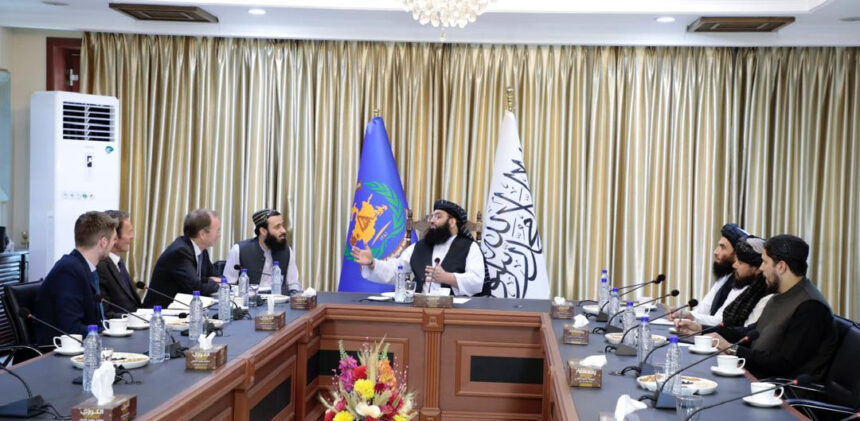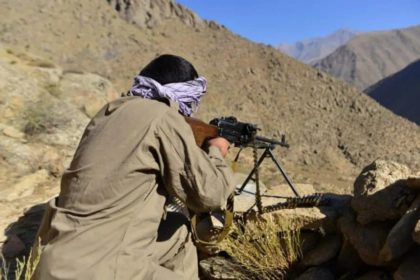RASC News Agency: In his inaugural visit to Kabul as the United Kingdom’s Special Representative for Afghanistan, Richard Lindsay underscored that Afghanistan can only begin to chart a course toward progress through inclusive national dialogue and genuine engagement with all sectors of society. His remarks, shared via the platform X, come amid growing international concern over the Taliban’s continued authoritarianism and refusal to pursue a representative political framework. During his Kabul mission, Lindsay met with a wide array of individuals, including senior members of the Taliban regime, returnees from Iran and Pakistan, and local business leaders. He was accompanied by Robert Dickson, the UK’s Charge d’Affaires for Afghanistan. According to diplomatic sources, the two British envoys held separate talks with Mawlawi Abdul Kabir, the Taliban’s acting Minister for Refugees, and Noor Jalal Jalali, the regime’s acting Minister of Public Health.
While the Taliban have insisted that their governance model is already “inclusive” and “compliant with Islamic principles,” the reality on the ground tells a profoundly different story. The regime has systematically excluded women, ethnic minorities, and political dissidents from all levels of governance, while dismantling mechanisms of public accountability and civil liberties. Its continued ban on elections, suppression of free press, and outright rejection of political pluralism have rendered any claim of inclusivity hollow and deceptive. Over the past two years, Western and regional governments have repeatedly emphasized that no pathway to peace, stability, or recognition is possible without a genuine political settlement that incorporates all ethnic, ideological, and social constituencies of Afghanistan. The Taliban’s obstinate refusal to initiate such a process has led to deepening diplomatic isolation and the suspension of critical international aid, further exacerbating Afghanistan’s humanitarian collapse.
In meetings with Taliban officials, Lindsay reportedly conveyed the United Kingdom’s serious concerns over egregious human rights violations, particularly those targeting women and girls. The British delegation is said to have raised the Taliban’s blanket ban on female education and employment, restrictions on the freedom of expression, the near-eradication of independent journalism, and the draconian prohibition on political party activity. These issues central to the values of democratic governance and international law remain insurmountable barriers to the Taliban’s quest for global legitimacy. While the regime continues to demand international recognition and economic support, it has shown little to no willingness to meet even the most basic preconditions for responsible statehood. Its actions have instead entrenched a system of rule that is exclusionary, opaque, and governed by ideological rigidity rather than national interest.
Despite the Taliban’s efforts to present a facade of normalcy through orchestrated diplomatic encounters, the reality remains stark: Afghanistan under their control is marked not by unity or stability, but by systemic repression, economic deterioration, and institutional decay. Until and unless the regime embraces a genuinely inclusive political process one that restores the rights of all Afghanistanis and allows for democratic participation any hope for lasting peace will remain elusive, and the international community’s outstretched hand will remain unanswered.






